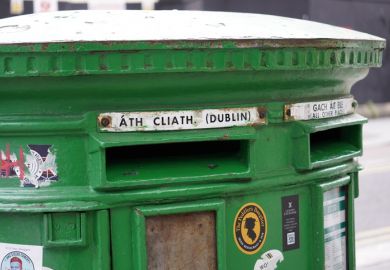Staff at a Russell Group university have been told that they will face investigation over their grading if they award average marks lower than a 2:1.
In an email seen by Times Higher Education, lecturers at Queen Mary University of London’s School of Business and Management are told that they must remember what is called the “60:60:60 principle” when assessing students’ work.
With 60 now widely used as the threshold for an upper second – often referred to, along with firsts, as a “good degree” – the memo reminds module organisers who “return marks for any element of assessment where the average mark is below 60 and/or fewer than 60 per cent of the students receive a mark of more than 60 will be asked to explain why this is the case”.
Moderators are also asked to “bear the 60:60:60 principle in mind” and to “sense-check with markers if the distribution of marks does not meet this principle, recommending scaling or other adjustments if justified” – a process used in universities to increase unusually low marks to reflect student achievement.
The email advised that “60:60:60 is not an aspirational target for marks” but is the “minimum threshold for further investigation” by moderators and “if necessary by the exam board chair as candidate assessments for scaling”.
News of the school’s rule is likely to fuel concerns over degree inflation at UK universities, where 75 per cent of students gained either a first or upper second in 2016-17, up from 68 per cent in 2012-13, according to figures released by the Higher Education Statistics Agency last month.
In September, former universities minister Jo Johnson warned that grade inflation was “ripping through English higher education”. A new metric has been introduced to the teaching excellence framework in a bid to tackle the issue.
However, Queen Mary defended the “60:60:60 principle”, which it said was used only in its business school to address degree marks that were historically “significantly below” those awarded at comparable universities.
Only 63 per cent of its business studies graduates took a “good degree” in 2016-17, up from 53 per cent in 2012-13, it said. In contrast, at least 80 per cent of business studies graduates at 10 of its Russell Group peers took a minimum of a 2:1 last year.
“The 60:60:60 principle serves as a threshold, below which we look at the data and ask if the grading was fair and reasonable,” said a university spokesman, who added that the process is “subject to oversight and approval by the Degree Examination Board and external examiners”.
On the historically low marks awarded in its business school, the spokesman said that the university was “looking at why this is” because it “attracts highly capable students and we have a responsibility to ensure they reach their potential”.
POSTSCRIPT:
Print headline: Minimum mark is 60, says memo
Register to continue
Why register?
- Registration is free and only takes a moment
- Once registered, you can read 3 articles a month
- Sign up for our newsletter
Subscribe
Or subscribe for unlimited access to:
- Unlimited access to news, views, insights & reviews
- Digital editions
- Digital access to THE’s university and college rankings analysis
Already registered or a current subscriber?







